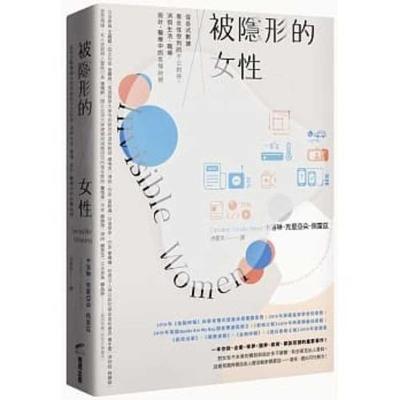
Random House presents the audiobook edition of Invisible Women written and read by Caroline Criado Perez.
'Invisible Women takes on the neglected topic of what we don't know - and why. The result is a powerful, important and eye-opening analysis of the gender politics of knowledge and ignorance. With examples from technology to natural disasters, this is an original and timely reminder of why we need women in the leadership of the institutions that shape every aspect of our lives.' Cordelia FineYou've heard all about the Gender Pay Gap... Welcome to the Gender Data Gap
Our world is largely built for and by men, in a system that can ignore half the population. This book will tell you how and why this mattersIn her new book, Invisible Women, award-winning campaigner and writer Caroline Criado Perez shows us how, in a world largely built for and by men, we are systematically ignoring half the population. She exposes the gender data gap - a gap in our knowledge that is at the root of perpetual, systemic discrimination against women, and that has created a pervasive but invisible bias with a profound effect on women's lives.
Caroline brings together for the first time an impressive range of case studies, stories and new research from across the world that illustrate the hidden ways in which women are excluded from the very building blocks of the world we live in, and the impact this has on their health and wellbeing. From government policy and medical research, to technology, workplaces, urban planning and the media - Invisible Women exposes the biased data that excludes women. In making the case for change, this powerful and provocative book will make you see the world anew.
- ISBN10 9864778536
- ISBN13 9789864778539
- Publish Date 4 July 2020 (first published 7 March 2019)
- Publish Status Active
- Imprint Shang Zhou Chu Ban
- Format Paperback (US Trade)
- Language Chinese
Reviews


brokentune
What an infuriating, thought-provoking, well-researched, well-presented investigation into the gender data gap and the problems this causes with respect to women being represented in all parts of life.
The breadth and level of detail that the author covers is fantastic. The referencing to research alone makes this book stand out for me as it does back up what often is communicated as anecdotal evidence - i.e. is usually disputable - with something far more concrete. The statistics are staggering and infuriating. Not as maddening, tho, as the apparent apathy towards the gender data gap - i.e. the lack of data based on women.
For example, medical research is mostly done using men. The results are then applied to all people as if there were no biological differences in how treatments and medications work, which is mad because there are differences.
Criado-Perez covers too many aspects of life to list, but her argument - and it is a strong argument - boils down to this: There is a lack of data that not only includes women (of which there seems to be a severe lack) but there is an equal and related lack of data that actively differentiates results to data collected based on men. And this lack of data and the lack of even acknowledgement that this data is important is one of the main reasons that we still cannot speak of gender equality, even in what people refer to as the developed world.
I'm so glad my colleague lent this to me.
I have also just ordered my very own copy so I can lend it to other people.
Failing to collect data on women and their lives means that we continue to naturalise sex and gender discrimination – while at the same time somehow not seeing any of this discrimination. Or really, we don’t see it because we naturalise it – it is too obvious, too commonplace, too much just the way things are to bother commenting on. It’s the irony of being a woman: at once hyper-visible when it comes to being treated as the subservient sex class, and invisible when it counts – when it comes to being counted.
There is one more trend I kept coming across while writing this book: the excuses. Chief amongst these is that women are just too complicated to measure. Everyone was saying this, from transport planners, to medical researchers, to tech developers: they were all knocking their heads up against Freud’s riddle of femininity and coming away baffled and defeated. Female bodies are too unharmonious, too menstrual and too hormonal. Women’s travel patterns are too messy, their work schedules are too aberrant, their voices are too high. Even when, in the early twentieth century, influential Swiss architect Le Corbusier was devising a standard human model for use in architecture, the female body was ‘only belatedly considered and rejected as a source of proportional harmony’, with humanity instead represented by a six-foot man with his arm raised (to reach that top shelf I can never reach).
The consensus is clear: women are abnormal, atypical, just plain wrong. Why can’t a woman be more like a man? Well, apologies on behalf of the female sex for being so mysterious, but no, we aren’t and no we can’t. And that is a reality that scientists, politicians and tech bros just need to face up to. Yes, simple is easier. Simple is cheaper. But simple doesn’t reflect reality.

HekArtemis
Read via dead tree and audible. The author narrates her audible version and I think she does a fantastic job of it.
